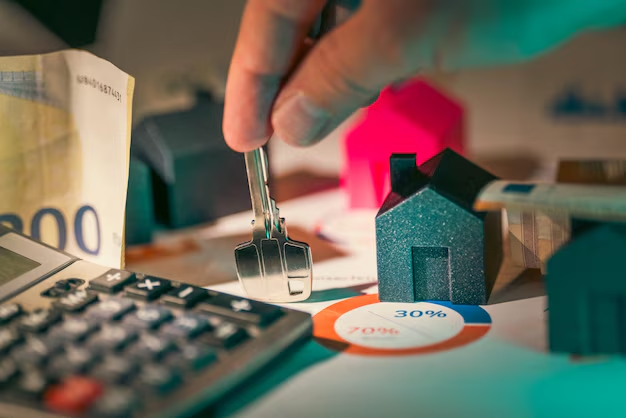How Property Values Shape Local Economies and Influence Financial Health
Understanding the intricate dance between property values, local economic vitality, and financial health is pivotal for both homeowners and investors. This dynamic trio often reflects broader economic conditions and possesses the latent power to shape individual financial outcomes and community growth patterns. Let's journey through the various dimensions and implications of property values for local economies and personal finances.
The Symbiotic Relationship between Property Values and Local Economies
Property values and local economies are deeply intertwined, akin to two sides of the same coin. A vibrant economy can drive up property values, while high property values can further stimulate economic activities.
Economic Growth: The Catalyst for Increasing Property Values
Local Job Markets: Thriving local industries and employment opportunities can increase housing demand, driving property prices upward.
Infrastructure Development: Investment in roads, schools, and public transport can enhance the desirability of an area, thus boosting property appeal and value.
Community Quality of Life: Amenities such as parks, cultural venues, and safety can make neighborhoods more attractive, contributing to escalating property values.
How Rising Property Values Impact Local Economies
Increased Tax Revenue: Higher property values typically result in increased property tax revenues, enabling local governments to invest in community and economic development programs.
Consumer Spending: Homeowners often feel wealthier with rising home values, potentially boosting local consumer spending—a critical aspect of regional economic growth.
Construction and Development: Rising demand can spur construction and renovation activities, further fuelling economic prosperity through job creation and related industries.
Property Values and Financial Health: The Personal Impact
Within personal finance, property values are more than numbers on a real estate listing; they have profound implications on net worth and financial strategies.
Home Equity: A Pillar of Financial Health
Building Wealth: Homeownership accumulates wealth over time as property values appreciate, underpinning the financial stability for many families.
Access to Loans: Rising home equity offers homeowners an avenue for low-interest loans, potentially used for education, investment, or emergencies.
Risks and Challenges of Changing Property Values
Market Volatility: Sudden declines in property values can erode homeowner equity, impacting financial security and borrowing capacity.
Affordability Issues: Rapid increases in property values can price out potential buyers and create housing affordability challenges in booming regions.
The Broader Societal Impacts of Property Value Fluctuations
Beyond individual impacts, property values can influence broader societal dynamics including urban planning, demographic shifts, and social equity.
Urban Development and Gentrification
Neighborhood Revitalization: High property values can lead to neighborhood improvements and resource influx, transforming areas into vibrant communities.
Displacement Risks: Conversely, soaring values may also result in gentrification, displacing long-term residents due to rising living costs.
Investment in Sustainable and Inclusive Growth
Community Development: Rising values can provide the resources for inclusive and sustainable community enhancements focusing on environmental stewardship and social equity.
Policy Implications: Local governments may implement policies regulating property taxes or supporting affordable housing to balance growth with equity.
Practical Insights for Homeowners and Potential Buyers
Navigating the property market requires more than just knowledge of numbers; it demands strategic thinking and awareness of broader economic implications.
Tips for Homebuyers
- Assess Economic Indicators: Consider job growth, infrastructure projects, and community trends when evaluating potential properties.
- Understand Local Market Conditions: Evaluate historical price trends, neighborhood desirability, and future growth plans—these are key to making informed decisions.
Tips for Current Homeowners
- Monitor Market Conditions: Staying aware of changing market dynamics helps manage expectations and prompts timely financial decisions.
- Consider Home Improvements Wisely: Focus on renovations that enhance both personal comfort and property resale value.
Concluding Insights: Bridging Property Values to a Prosperous Future
Property values are not static—they are vibrant reflections of various economic, social, and financial dynamics. For communities, striking a balance between leveraging property values for growth while maintaining inclusivity and affordability is essential. As individuals, understanding these relationships empowers smarter decisions that enhance financial security and prosperity.
📌 Key Takeaways
- Economic Influence: Thriving local economies typically lead to increasing property values, creating a positive feedback loop of prosperity.
- Personal Financial Health: Rising property values bolster personal financial security, offering both wealth-building opportunities and potential risks.
- Community Impact: Higher property values can fund community improvements but must be managed to avoid displacing residents.
- Strategic Plans: Both homebuyers and homeowners should assess economic indicators and local market conditions to inform their real estate strategies.
By holistically understanding the impact of property values, individuals and communities can navigate the complexities of real estate with confidence, ensuring sustained economic and financial health for all involved.

Related Topics
- A Beginners Guide To Investing In Gold And Other Precious Metals On a Budget
- A Comprehensive Guide To Bridge Loans: How They Can Be Helpful For Lower Income Americans
- A Comprehensive Guide: Growth Stocks Versus Value Stocks
- A Comprehensive Guide: The Impact Of Bankruptcy On Homeownership And Mortgage Options
- A Guide For Lower-Income Americans: Making Your Savings Last A Lifetime
- A Guide: Understanding Different Types Of Bank Accounts
- A Guided Journey: Applying For a Mortgage Through Your Bank
- A Helping Hand: Government Assistance Programs For First-Time Home Buyers
- A Practical Guide: Understanding And Reducing Your Property Tax Assessment
- A Simple Guide To Rent-to-Own Home Contracts For Lower-Income Americans
